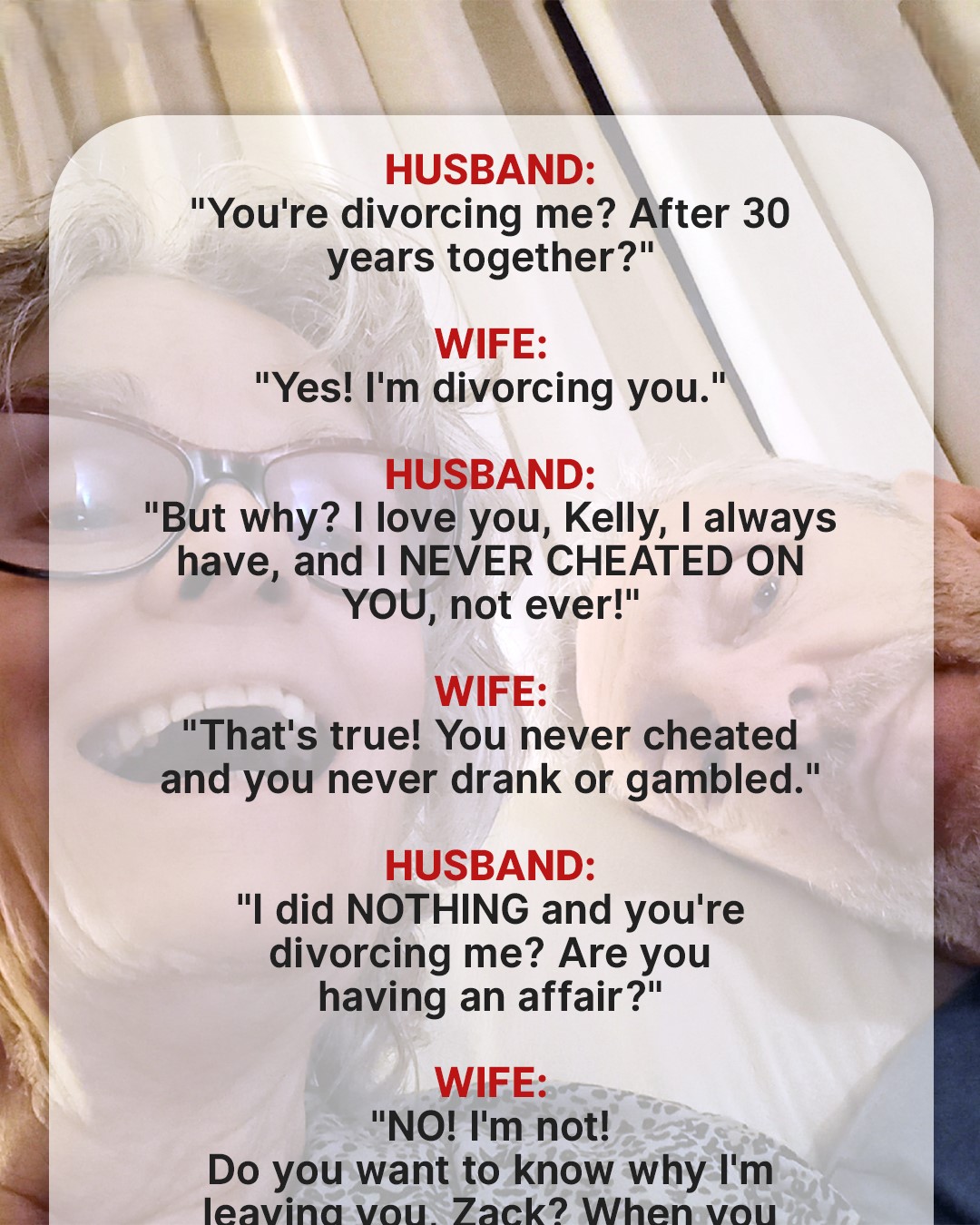When I asked my husband of thirty years for a divorce, he was completely blindsided. To him, he had done everything right—he was loyal, dependable, never yelled, never drank too much, never strayed. In his mind, he was the ideal husband. But behind the appearance of stability and commitment was a truth he never saw coming: I had been deeply unhappy for years.

The realization didn’t hit me all at once, but it built slowly over time, like a weight gathering until it finally became too heavy to ignore. The kids had moved out, leaving the house eerily quiet, and instead of feeling like a couple rediscovering each other in this new chapter, we felt like distant roommates sharing a space out of habit. I’d watch Zack pour his coffee while I packed my work bag, and we’d exchange polite smiles before going our separate ways. No kiss, no affection, just a hollow routine we’d repeated for decades.
It all came to a head two weeks after our youngest left for college. It was our thirtieth anniversary. We sat at the kitchen table, and sunlight streamed through the windows. He was wearing his usual crisp shirt, eating his usual breakfast, and I looked at him and realized that I couldn’t do it anymore. My voice shook as I said, “Zack, I want a divorce.” He stared at me in disbelief, fork frozen halfway to his mouth. “What? What are you talking about?” he asked, as though I were joking. But I wasn’t.
I calmly repeated, “I’m divorcing you.” The look on his face was one of complete shock, as if I had just dropped a bomb he never saw coming. He pleaded with me, confused and devastated. “But I’ve always loved you. I never cheated. I’ve always been here.” And that was the issue—he had been here in body, but emotionally, he’d been absent. I reminded him of the times I begged for help, the years I balanced work and parenting and housework with no support. When I fell ill and needed care, when I lost my father and was drowning in grief, when I was fighting depression and crying quietly in the dark—he was there physically, but never truly present.
When I asked for couples counseling, he dismissed it because, in his eyes, nothing was wrong. I tried to explain that my reaching out, my silence, my sadness—those were my pleas for help. But he never recognized them, never acted. By the time I finally said the words, “I want a divorce,” I had already grieved the marriage. He promised he would change, said he’d go to therapy, learn how to be better. And for a fleeting moment, I wanted to believe him. But after thirty years of emotional neglect, I couldn’t unfeel the years of loneliness. I told him that real love doesn’t wait until the breaking point to show up. The next day, I packed my things and moved into a small apartment by the ocean. I sold my car and started biking. I bought clothes that made me feel alive, chopped off my hair into a modern bob, and rediscovered who I was. My children were stunned, especially my oldest, who called crying and told me how heartbroken their dad was. I understood, but I had to choose myself this time. I began to rebuild my life—joining dance classes where I laughed until I cried, joining book clubs, eating out with friends, and learning how to be alone without being lonely. People said I looked younger, and honestly, I felt it. A year later, I met Sam. He was gentle, thoughtful, and fully present. He noticed the small things—how I liked my tea, the way I talked with my hands, the books I kept by my bed. He listened when I spoke and responded with warmth and intention. We fell in love slowly and intentionally, and now we’re planning to get married next summer. I’m a little nervous about walking down the aisle again, but I know now what love should look like—consistent, attentive, and kind. As for Zack, I’ve heard he’s dating a younger woman who barks orders and spends his money without thinking. Maybe that’s his version of starting over, or maybe it’s his own path to self-discovery. Either way, I’ve let go of the need to wonder. I’ve taken back my life, my happiness, and my voice. What I’ve learned is that love is more than loyalty or tradition—it’s about showing up emotionally, every single day. Love is in the listening, in the sharing, in the willingness to adapt and grow together. And when that’s missing, sometimes the bravest thing you can do is walk away to find the peace and joy you truly deserve.





